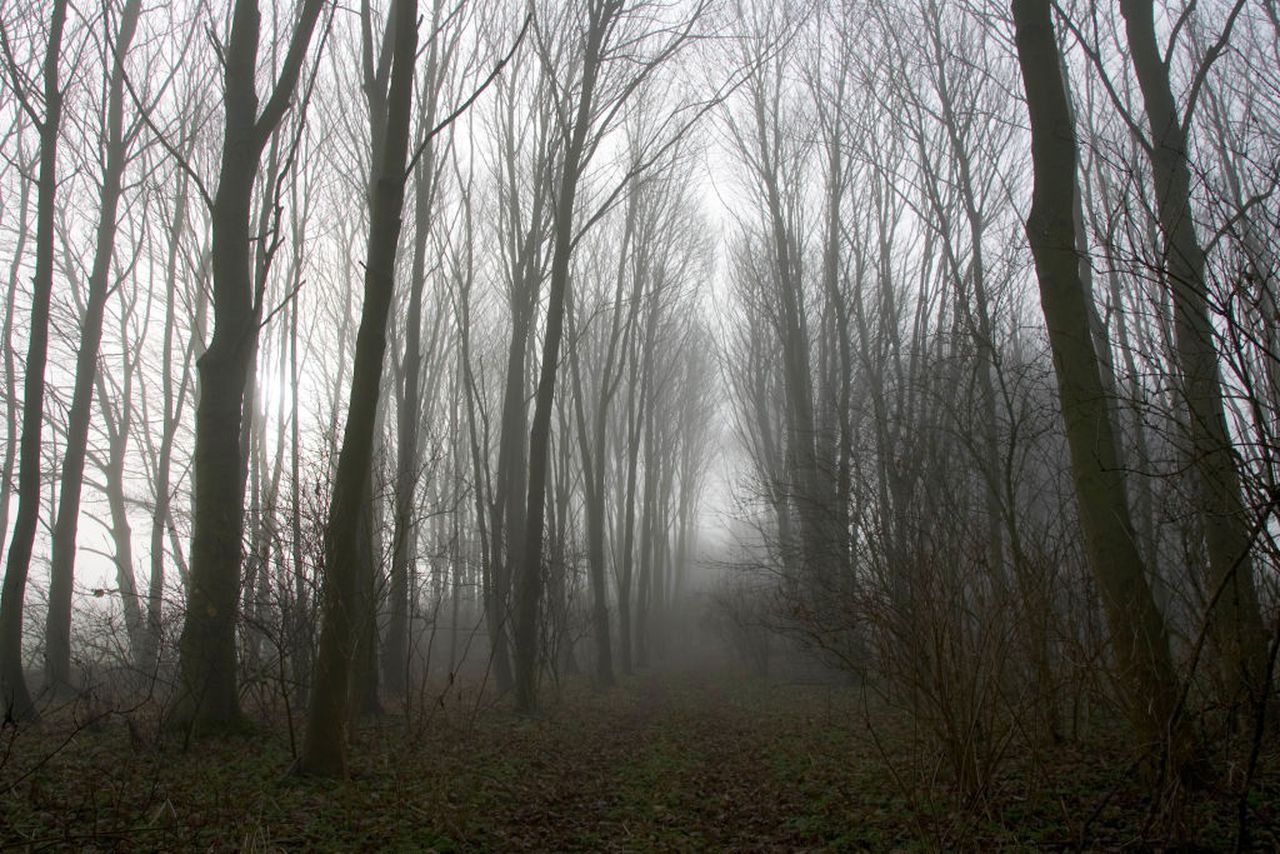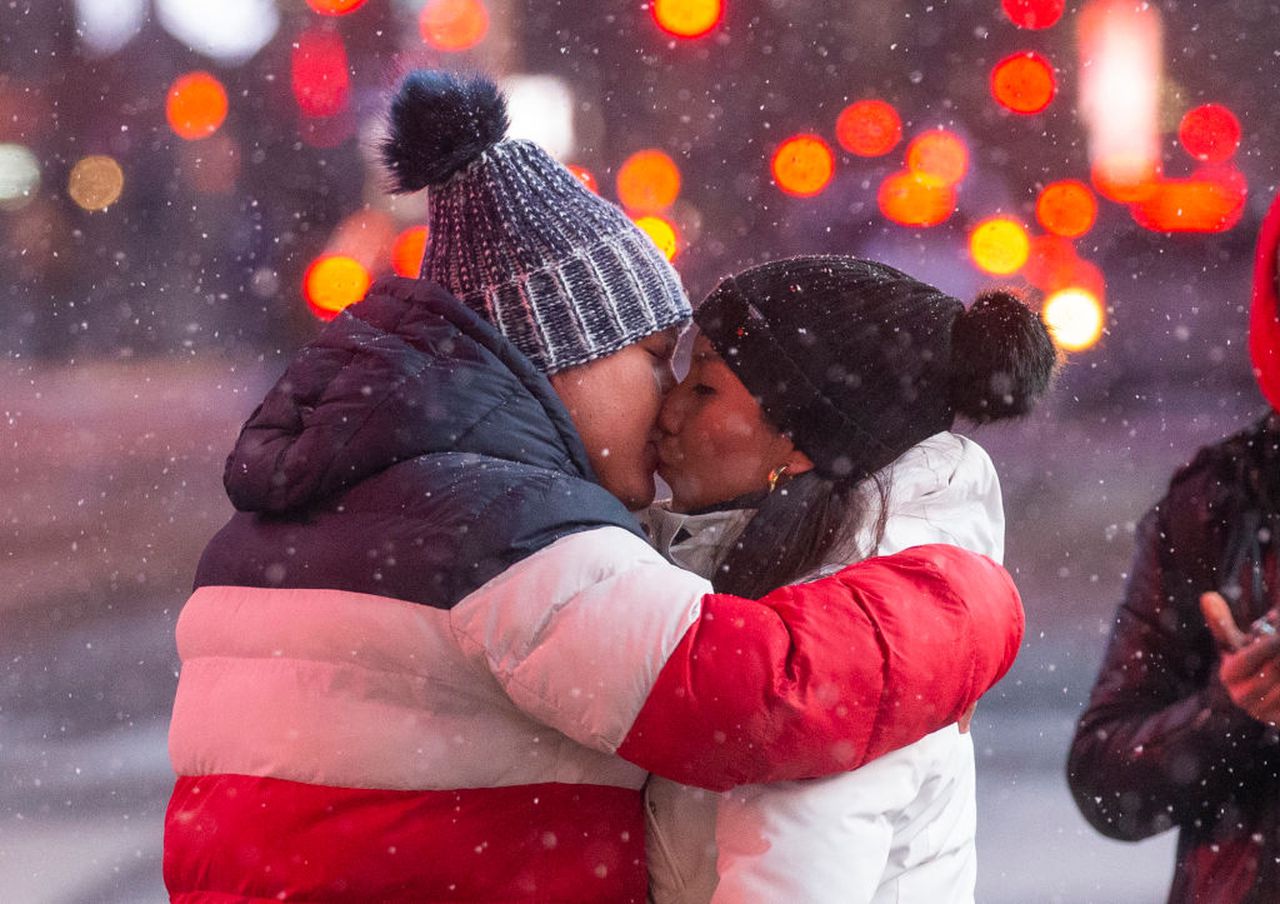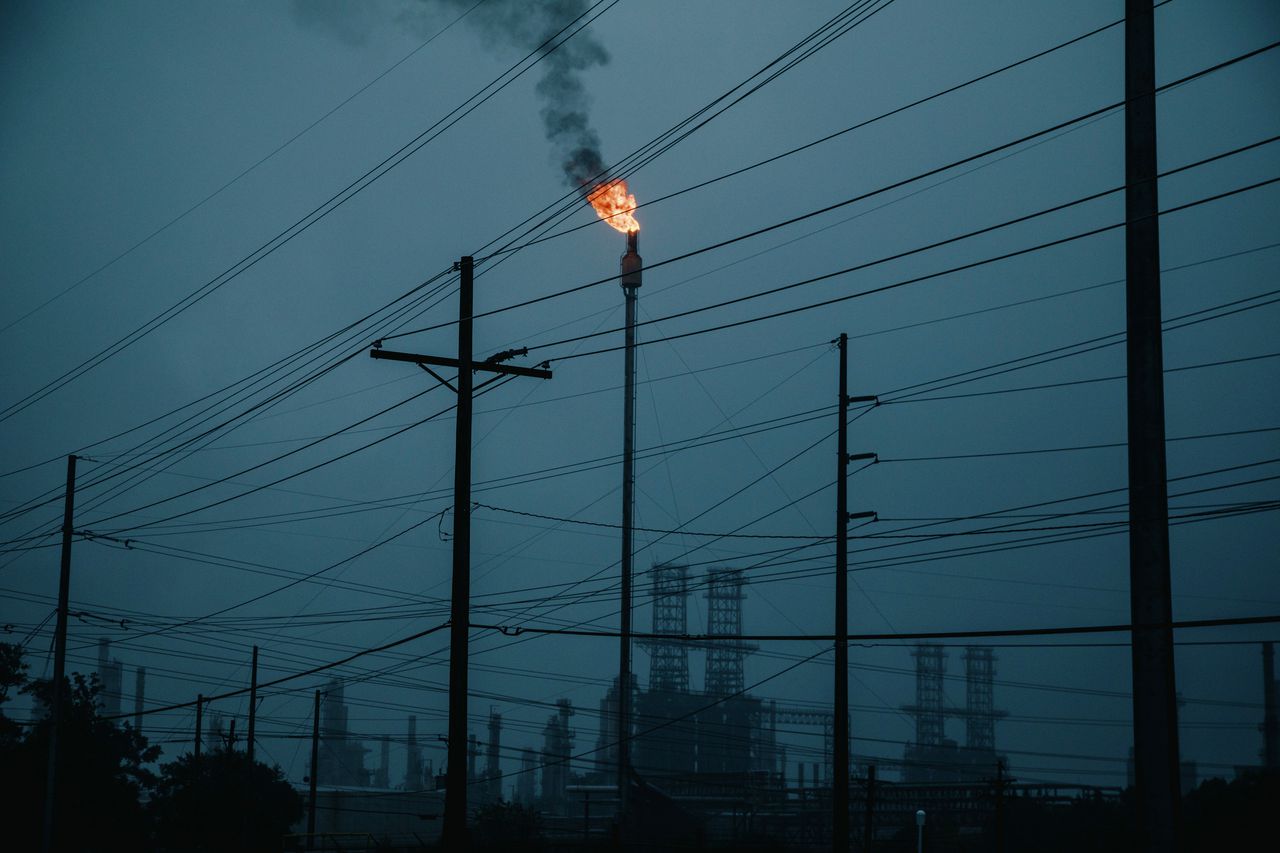Cuffing season is good for the planet
In case you weren’t following the Gen X calendar this year, fat bear week is over, and cuffing season is in full swing. If you’re not familiar with cuffing season, it’s where you find a partner with central heating and snacks to ride out the winter. Then, once the frigid cold has lifted, you come out of hibernation and rejoin Tinder.
But cuffing season can be hit or miss for so many. For instance, residents in Louisiana will experience an extended and potentially tumultuous cuffing season when Attorney General Jeff Landry takes over as the state’s governor on Jan. 8. Now, if you love the environment and believe in climate change, Landry may not be the man for you. Tough. You’ve got him for four long years.
This week in the Meltdown, we’ll take a quick peek at Landry’s climate past and what could be in store for Louisiana moving forward.
Flames from a flare stack at an oil refinery in Louisiana, U.S. Photographer: Bryan Tarnowski/BloombergGetty Images/Bloomberg Creative
Drizzle
The core of Landry’s vision is for Louisiana to ultimately increase its energy production. The state is already one of the country’s top oil and natural gas producers. Still, it’s also a central hub for exporting liquefied natural gas, or LNG, from its colossal terminals dotting its vulnerable coastline. And don’t forget the 150 petrochemical plants that spew harmful emissions in the 85-mile stretch between New Orleans and Baton Rouge known as Cancer Alley.
At the same time, Louisiana is at the forefront of the climate crisis. The state and its residents are dealing with many climate threats, and some activists are concerned.
“[Landry] is taking the reins after a summer of disasters: record-breaking heat, wildfires, and a drought that has no end in sight,” said Anne Rolfes, the founding executive director of the Louisiana Bucket Brigade, a New Orleans-based nonprofit environmental health and justice organization. He won’t acknowledge that the oil and gas industry has caused this crisis or even that this crisis exists. What will he do about the impacts – the storms, the flooding, the housing insurance that is unaffordable?”
But if you want a taste of what’s ahead, here are some environmental cases that Landry has joined or brought against the federal government in recent years.
Issue: Challenging EPA’s approval of California’s emission standards and zero-emission vehicle mandates, alleging forced adherence to California’s standards and increased costs.
Issue: Disputing the Waters of the United States (WOTUS) rule extends federal jurisdiction over water bodies. Critics and plaintiffs claim federal overreach.
Louisiana vs. Federal Emergency Management Agency
Issue: Contesting FEMA’s “Risk Rating 2.0″ for the National Flood Insurance Program addresses rate disparities based on property values.
Texas v. National Highway Traffic Safety Administration
Issue: Opposing the corporate average fuel economy standards (CAFE), alleging violation of the prohibition on mandating electric vehicles.
Issue: Challenging greenhouse gas regulations, asserting economic harm to states, and overreach of EPA’s authority.
Issue: Addressing the delay in a rule related to lead and copper in drinking water. Claiming adverse health effects due to the delay. In this case, Landry and the other AGs were trying to prevent the Biden administration from delaying a Trump-era rule that would hasten telling residents about lead and copper contamination but extend the time utilities had to deal with it.
Issue: Objecting to an executive order to calculate the social cost of greenhouse gases in various regulations.

GREAT BRITAIN – JANUARY 22: Woodland in the mist, Gloucestershire, United Kingdom. (Photo by Tim Graham/Getty Images)Tim Graham/Getty Images
Touch Grass:
As you may have noticed, it’s getting colder and the days are getting shorter. Maybe you haven’t found a cuffing partner for the winter, and perhaps you’re preparing for the onset of seasonal affective disorder (SAD), which is a type of depression that comes with the changing of the season. About 10 million Americans are affected by it.
Here are some tips to keep yourself positive.
Limit Negativity: Identify and reduce sources of negativity, like certain people or websites, and replace them with positive influences.
Exercise: Regular physical activity, even walking, can boost mental health and alleviate worries.
Discuss Feelings: Talk with someone close to vent and reframe negative thoughts.
Serve Others: Helping others can divert attention from negativity and add positivity.
Practice Gratitude: Focus on positive aspects and things you’re thankful for in your life. I like to make a list of five things I’m grateful for. It can be anything: a cup of coffee or the lovely fall breeze coming in your window.
Journal: Dedicate 15 minutes daily to write your thoughts, recognizing and addressing distortions.
And as a bonus, here’s a favorite mantra that often helps reframe my catastrophic thinking.”What if things work out? They usually do.”

A couple kiss each other as snow falls during a winter storm in Times Square New York on January 31, 2021. (Photo by Kena Betancur / AFP) (Photo by KENA BETANCUR/AFP via Getty Images)AFP via Getty Images
Compost Dump
While you might think that cuffing season is silly and for needy 20-somethings, or in my case, needy late 30-somethings, there is some evidence that it’s mother nature playing Cupid, and it might even be good for the environment, even if it’s just a little bit.
Some experts say the winter dating phenomenon stems from our biological need to survive. It brings us together. And as you know, sharing things is always more sustainable.
Just think about it: when two people snuggle under a single blanket, there’s less temptation to nudge up the thermostat. Date nights also become greener; you might opt for a single car or, even better, share a seat on public transport. Staying in for a movie marathon or whipping up a homemade dinner means less driving and zero take-out waste. And let’s not forget the advantages of shared gift-giving—think sustainable presents and reduced resources for big festivities. And that can all lead to a big bunch of dopamine that may even keep your SAD away.
Who knew love could be so green?
